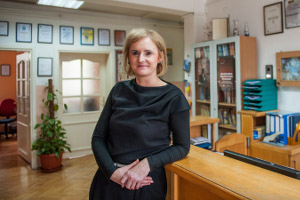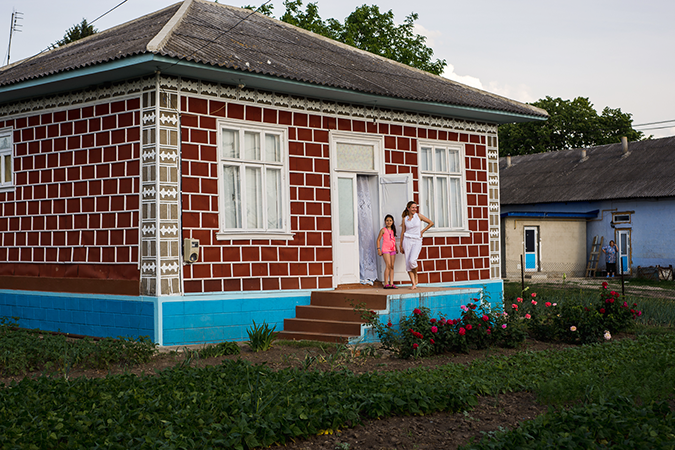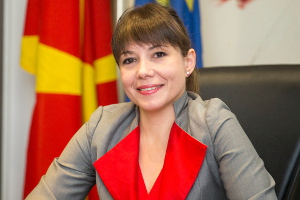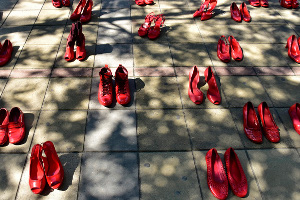Transform
In Kosovo, legal recognition of war-time sexual violence survivors after 18 years
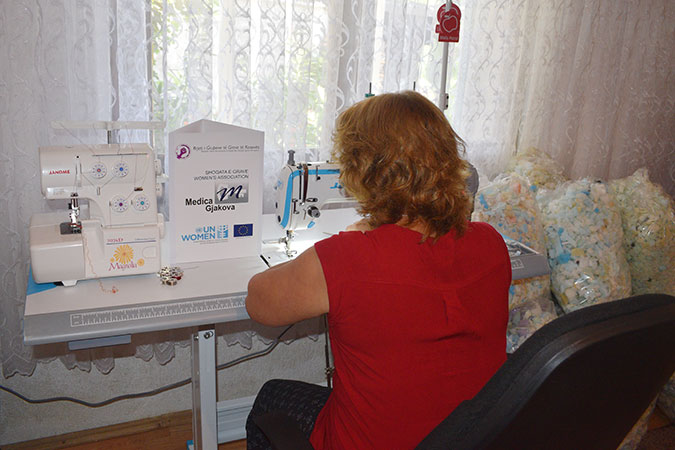
"Like many other women in Kosovo[1], I was raped,” says Viki Jani. “My husband abandoned me. He didn’t want to have a wife that people would point fingers to and say, ‘your wife was raped.’ Jani is a survivor of sexual violence during the armed conflict of 1998 – 1999 in Kosovo. After almost two decades of silence and stigma, she and other women survivors of war-time sexual violence will soon get legal recognition and reparations, including financial assistance.
In September 2017, in a key step forward, the Government of Kosovo allocated a budget for the process of recognizing and verifying the status of survivors of war-time sexual violence, who until recently had no legal recognition or rights. The new decision identifies and gives survivors the official status as civilian victims of war, making them eligible for reparations, including financial assistance in the form of monthly pensions. Read more►
After a recent UN Women conference brought together stakeholders to discuss access to justice and reparations for conflict-related sexual violence survivors in Kosovo, the government announced it had allocated 1 million euros to the 2018 Kosovo budget for conflict-related sexual violence survivors. Read more►
More stories
Take five: Domestic legislation in Bosnia and Herzegovina needs to be harmonized with the Istanbul Convention
“Given that the Istanbul Convention is one of the most comprehensive international documents relating to violence against women and domestic violence, I believe that Bosnia and Herzegovina should make full use of the benefits and possibilities under the Convention,” says Fatima Bećirović – a project coordinator at the Government-managed Gender Centre of the Federation of Bosnia and Herzegovina (BiH). Throughout her work, Bećirović has participated in a variety of research on domestic and gender-based violence and has experience as an educator in the field of violence against women. UN Women works closely with the government of BiH to combat violence against women through a number of initiatives. Bećirović discusses the importance of effective legislation to prevent violence against women in the country. Read more►
"My girl is not for sale": Escaping child marriage in Moldova
Svetlana, 12, was walking home from school when a 17-year-old boy—a distant relative who visited her home sometimes—raped her. Svetlana belongs to a Roma family. The unwritten rules of their community say that no other Roma man will marry her, and often survivors of rape are forced to marry their rapist. But Svetlana’s family challenged the prevailing cultural norms by refusing a reparatory marriage. “My girl is not for sale,” said her mother. “What about her childhood, her dreams? What was the chance that such a marriage would last? Our decision took the community by surprise, but we knew that what she needed most was for us to stand by her and let her stay with her family, surrounded by our love.” Read more►
Take Five: Gender equality is key to ending violence against women
Mila Carovska has been the Minister of Labour and Social Policy for the former Yugoslav Republic of Macedonia since May 2017. She is a long-standing human rights activist with extensive experience in the civil society sector and an independent expert in social protection, sexual reproductive rights and gender equality. The Ministry is a partner of UN Women in advancing the gender equality agenda and combatting violence against women in the country. “Macedonia needs clear and unambiguous legal solutions that will prevent violence and protect victims,” says Carovska. Read more►
Serbia fights to curb violence against women
“Stop femicide”, "Let's react before it's too late" and "Why are they not among us?" were some of the messages which flooded social media in Serbia over the summer. Banners carrying the same messages also appeared on the streets and these sentiments have been reiterated by state officials and national authorities. 40 pairs of red shoes have found its place in front of the Serbian Government's building as a reminder that more than 40 women in the country are killed every year by their intimate partner. Calls to curb domestic violence in Serbia are mounting after two women and a child were killed in two separate incidents in the same week in July. Read more►
[1] All references to Kosovo on this website shall be understood to be in full compliance with UN Security Council Resolution 1244 (1999).
